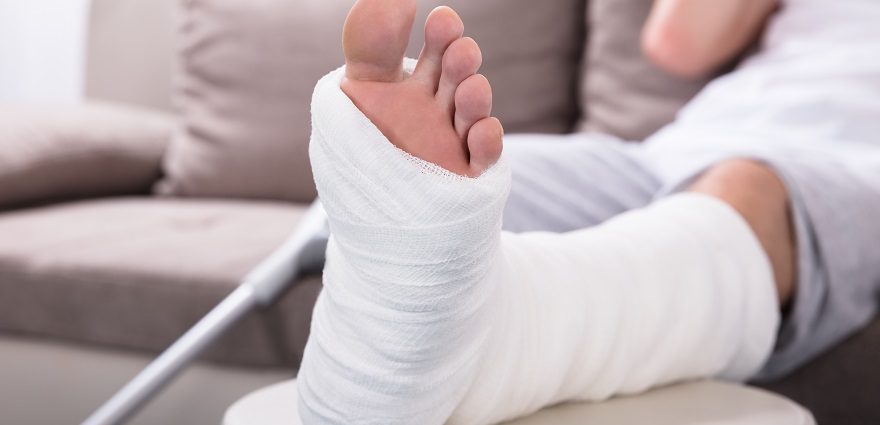Bariatric Surgery Bone Fracture Risks

If you have had weight loss surgery, you may be at increased risk of sustaining a fracture – especially in your hand or foot, according to new research presented at The Endocrine Society’s 91st Annual Meeting in Washington, DC.
People who undergo bariatric surgery are at higher risk for nutritional deficiencies due to the nature of the surgeries, which may account for the new findings. In addition, bariatric surgery results in an increased rate of bone turnover, which may further fracture risk.
Your bones continually change. Some bone cells dissolve while other bone cells experience regrowth. If this bone-turnover rate is too rapid, new cells may not be able to keep with the resorption of old bone. This can leave bones brittle and prone to fractures.
In the new study, researchers from the Mayo Clinic in Rochester, Minnesota reviewed the medical records of patients who had bariatric surgery between 1985 and 2004. So far, the authors have analyzed data for 97 of 292 patients whose records are available. After bariatric surgery, 21 patients sustained one or more fractures (31 total fractures).
Compared to individuals struggling with obesity who have not undergone weight loss surgery, bariatric surgery patients were 1.8 times more likely to have a first fracture anywhere in their body. According to the study, bariatric surgery recipients were three times more likely to fracture their hand and four times more likely to fracture their foot, than people who did not have bariatric surgery.
Three-Step Plan To Help Protect Your Bones After Weight Loss Surgery
Step 1. Supplements
Calcium and vitamin D supplements may be needed to maintain bone health and strength after bariatric surgery. While individual recommendations vary, most people who undergo weight loss surgery benefit from a diet rich in calcium combined with 1,200 to 1,500 milligrams of calcium supplements – split into two doses and taken twice daily.
Vitamin D helps the bones better absorb calcium. Recommendations for vitamin D are tiered based on blood levels. If a person is at all deficient, most surgeons recommend supplementation starting at 2,000 international units per day.
Vitamin D is often referred to as the “sunshine vitamin” because we produce it organically when we are exposed to sunshine. Obese people, as well as those formerly obese, may experience vitamin D deficiency because they lead a more sedentary lifestyle, and may be more self-conscious and sensitive to heat.
Step 2. Exercise
Exercise is also an important part of the bone-building equation. Both aerobic exercise – such as walking and strength training – may help bones stay healthy and strong. Talk to your doctor about how much exercise you should be getting after your surgery.
Step 3. Screening
Regular screening for bone mineral density can also help assess bone health. If you have low bone mass or osteoporosis, there are medications that can help.
Bisphosphonates, for example, help slow or stop the natural process that dissolves bone tissue, which may reduce the risk of fractures and broken bones.
These drugs have been linked to jaw necrosis, also referred to as osteonecrosis of the jaw (ONJ) or jaw death in people taking them. This risk is greatest in people receiving large doses of intravenous bisphosphonates to treat cancer. Dentists are also evaluating a potential link between the placing of dental implants in bisphosphonate users and the development of ONJ.
Talk to your doctor about when you should be screened for osteoporosis and whether you need medication based on the results of your screening test. Some people who have had weight loss surgery may not be able to tolerate certain bisphosphonates because these drugs can increase the risk of developing an inflammation of the esophagus, and certain weight loss surgery patients are particularly prone to esophagitis
About the Reviewer of This Article
Kerstyn Zalesin, MD, is the medical director of the bariatric program at Beaumont Hospital in Royal Oak, Michigan. Dr. Zalesin received her medical degree from Wayne State University in Detroit, Michigan. She is certified by the American Board of Internal Medicine and the American Board of Bariatric Medicine. Dr. Zalesin has published numerous articles on bariatric surgery in medical journals, and lectures frequently on weight loss surgery.


